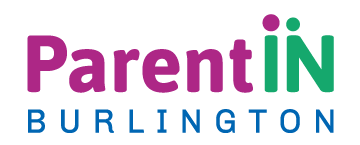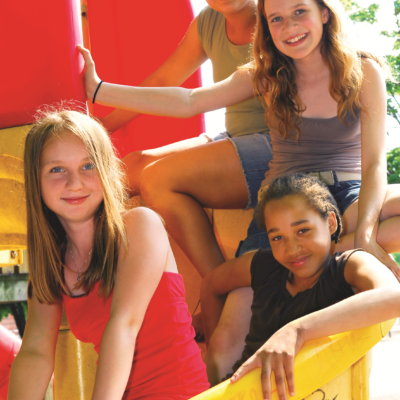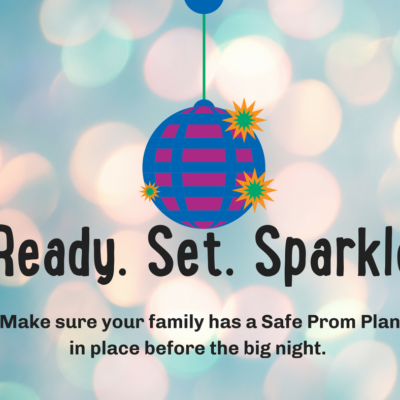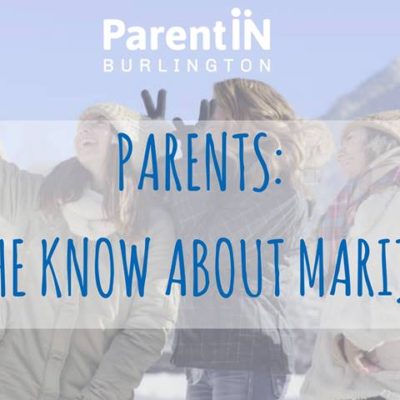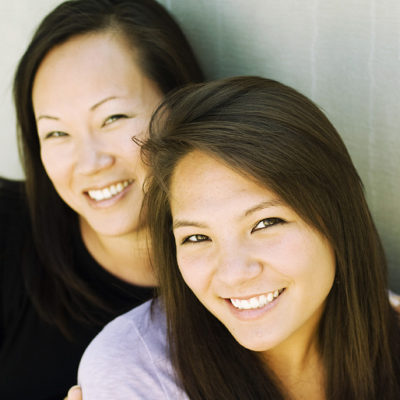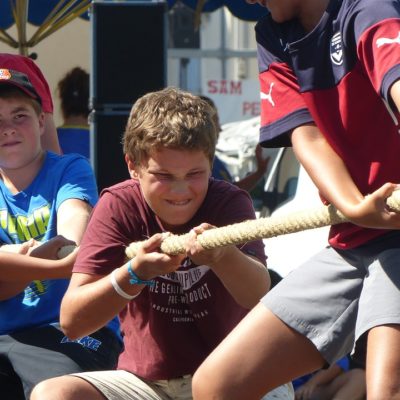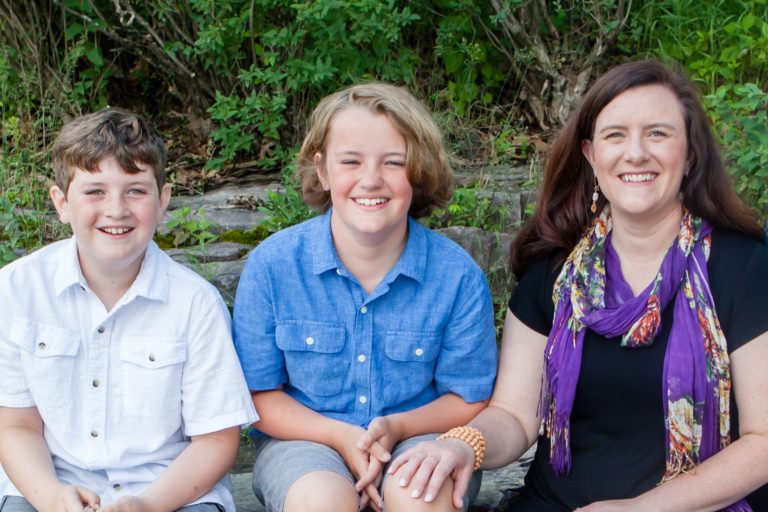
How I Talk to My Kids About Marijuana
Mariah Sanderson can talk about substance abuse prevention all day long. After nearly 18 years in the field, first as a treatment counselor and now as director of the Burlington Partnership for a Healthy Community, she has learned a lot about what works to prevent substance abuse for communities and families. As a mom to two preteens, though, she still finds some discussions at home challenging.
With the recent move by the Vermont legislature to legalize marijuana for use at home, conversations with kids about the drug seem more important than ever. We asked Mariah how she talks to her kids about staying safe from the dangers of marijuana and what the change means for their family.
ParentIN: How old were your kids the first time you talked to them about marijuana? How did you start the conversation?
Mariah Sanderson: I’ve been talking to my kids about drug and alcohol use from a pretty early age, but I’ve tried to be thoughtful about doing it at an age appropriate level. So when they were really young I focused more on things like medication safety (don’t eat something you find that may look like candy or that is offered to you by someone you don’t know). As they got older we started talking about why there are age limits on legal drug and alcohol use and how their brains are still developing until up to the age of 25, so it is really important for growing kids to keep their bodies and brains healthy. My kids are 10 and 13 now and honestly we started talking more about marijuana in the last 2 years or so as the conversation about legalization has become more prominent in the media. Rather than start the conversation out of the blue, I tend to look for those “windows of opportunity”. So when a news story comes on the radio related to marijuana policy, I ask the kids what they think about it. It is often a good segue into further conversation about drug use and how to make healthy decisions. I find that the car is a great place for family conversation because it is a casual atmosphere and the kids are sometimes more likely to answer honestly when they don’t have to look at me!
PI: What questions did your kids have that surprised you?
MS: I’m not sure that this surprised me, but what has been most challenging is that I can see how confused the conversations about marijuana legalization are for my kids. They’ve learned it is not healthy for them to use marijuana but then it is becoming legal to use it... they are at the age where they still use a lot of black and white thinking and this can be really confusing for them. I think it is really important for families to become informed about the marijuana available today and use that knowledge to help increase their perception of the harms associated with using marijuana while their brains are still developing.
PI: Kids in middle school have consistently low rates of reported marijuana usage compared to high school students (7% of Vermont middle school students report ever using marijuana vs 37% of high school students). Do you think preteens really need to hear about the dangers of the drug so early?
MS: Yes! Middle school is a time when kids are still very receptive to education from parents and other adults. This is a perfect time to help instill in them the values that can help carry them through high school when their peer group begins to have more influence and they may be exposed to increased situations where drugs and alcohol are available. I often tell my kids, “Someday you will be in a situation where someone offers you marijuana (or another drug), that day should not be the first time you think about what you are going to say.” The kids and I have practiced funny or real ways to say “No, thanks.” At this age kids still tend to see drugs and alcohol as BAD and when I’ve asked them “What would you say if someone offered you marijuana” they envision a “bad guy” doing it. So we talk a lot about how when it happens it will probably be like other situations they’ve been in where they are with friends and someone gets a dumb idea or says something cruel to someone else, and they don’t really feel good about doing it, but they do it anyway, because saying “no” to a friend is hard. I tell my kids the more we practice what they will do, the more automatic it will become to say “no”. My advice is, start talking to your kids early and keep talking often – but it doesn’t have to have the tone of a “serious conversation”. It is a serious topic but my kids respond better when I keep it casual and bring it up when it is relevant to something we just saw on TV or in the community.
PI: What data trends on youth marijuana use and perception of harm really concern you?
MS: The thing we should all be paying attention to is the fact that in general most drug use among youth has been dropping for almost a decade. Underage alcohol use, tobacco use and opioid use among middle and high schoolers have all dropped, however, marijuana use for these age groups has not – nationally, on a state level, and here in the Burlington District level. I believe that is in part due to the increased social acceptability and normalization of marijuana use and not enough education to help people understand the harms associated with use, particularly for youth. Additionally, the kids in Burlington who report using marijuana are also reporting an increase in other risky behaviors associated with their use. The number of BHS students who reported driving after using marijuana has increased from 7% in 2011 to 15% in 2015 and the BHS students who reported using on 3 to 9 of the last 30 days has increased from 6% in 2011 to a staggering 25% in 2015. This is consistent with other state and national trends – people using marijuana report they are using more frequently. This is particularly concerning for youth given that the marijuana available today is much stronger than previous decades and carries a much higher risk for addiction – for youth especially.
PI: What do you find most challenging when talking about marijuana use?
MS: What is really hard for me is having the conversation with other parents. I believe it is really important that I get to know the kids my kids hang out with and build relationships with their parents or caregivers. One reason is because if my kid is spending time in their home, I know it is important to ask questions about whether they lock up or track drugs like marijuana, alcohol, and prescriptions in their home. I also know that some parents might have different values about alcohol and drug use for youth than I do. But those conversations can be super UNCOMFORTABLE and even though I know it is a good idea I still have to push myself to have them. I’m hoping that by getting to know the families my kids spend time with it will be easier for us all to be open with each other and have those difficult conversations.
Interested community members are encouraged to attend the ParentIN marijuana educational event, “Parents: Be IN the Know about Marijuana” Saturday, February 17th from 11 am to 1 pm at the Fletcher Free Library. Childcare is available upon request. Please register for this free event: www.ParentIN.Eventbrite.com
